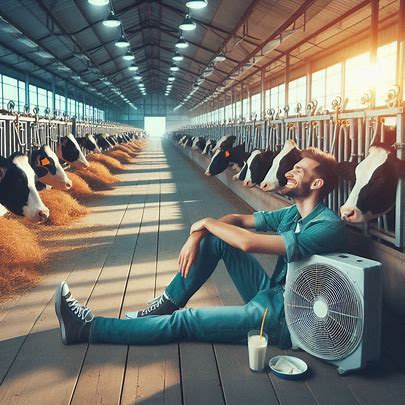Sustainable Air Conditioning: How Proper Maintenance Reduces Energy Waste

Clean Air Conditioning Supports Environmental Sustainability
Air conditioning accounts for a significant portion of energy use in homes, businesses, and farms. Poorly maintained systems consume more power, increasing energy costs and carbon emissions. Keeping air conditioning units clean and well-maintained reduces waste and promotes sustainability.
Regular servicing ensures that filters, coils, and ducts remain free of dust and debris. An efficient system requires less energy to cool a space, reducing environmental impact. The aircon team from Advanced Clean Air specializes in keeping systems in top condition, helping homes and businesses optimize energy use.
How Maintenance Reduces Energy Consumption
Air conditioning systems work harder when dust and dirt accumulate inside them. Clogged filters restrict airflow, making the unit use more electricity. Clean filters can lower energy use by up to 15%, making a noticeable difference in power bills.
Routine maintenance also prevents refrigerant leaks, which can cause a system to overwork. When refrigerant levels drop, the unit struggles to cool efficiently, consuming more power. Checking and refilling refrigerant ensures steady performance and lower energy usage.
Lowering Carbon Footprints in Homes, Farms, and Businesses
Reducing energy waste benefits not only property owners but also the planet. Lower electricity consumption means fewer greenhouse gas emissions. Households maintaining their air conditioning units contribute to cleaner air and a more sustainable environment.
Farms and agricultural facilities also benefit from regular maintenance. Proper ventilation is essential for livestock health; well-maintained air conditioning helps regulate temperature efficiently. Businesses that maintain their cooling systems can cut operational costs while aligning with eco-friendly initiatives.
Healthier Air for People and Livestock
Beyond energy savings, regular air conditioning maintenance improves indoor air quality. Dirty filters and ducts trap dust, mold, and allergens, leading to respiratory issues. Clean systems circulate fresher air, benefiting everyone in the space.
For farms, maintaining air conditioning ensures livestock breathe cleaner air, reducing stress and disease risk. Proper upkeep supports a healthier environment in homes, offices, or agricultural settings.
Simple Steps for Efficient Air Conditioning
Keeping an air conditioning unit efficient does not require expensive upgrades. Regularly replacing filters, cleaning coils, and checking refrigerant levels can keep a system running smoothly. Professional servicing ensures deep cleaning and early detection of potential issues.
Investing in routine maintenance leads to long-term savings. A well-maintained unit lasts longer, preventing the need for costly replacements. More importantly, it helps reduce energy waste and supports sustainability efforts.
READ ALSO: Vertical Farming and Urban Agriculture: Feeding Cities Sustainably
Conclusion
Proper air conditioning maintenance is essential for reducing energy waste and lowering carbon footprints. Clean systems improve efficiency and air quality in homes, farms, and businesses. Partnering with experts ensures units remain in peak condition, leading to cost savings and environmental benefits. Sustainable cooling starts with regular upkeep, making a difference for people and the planet.

